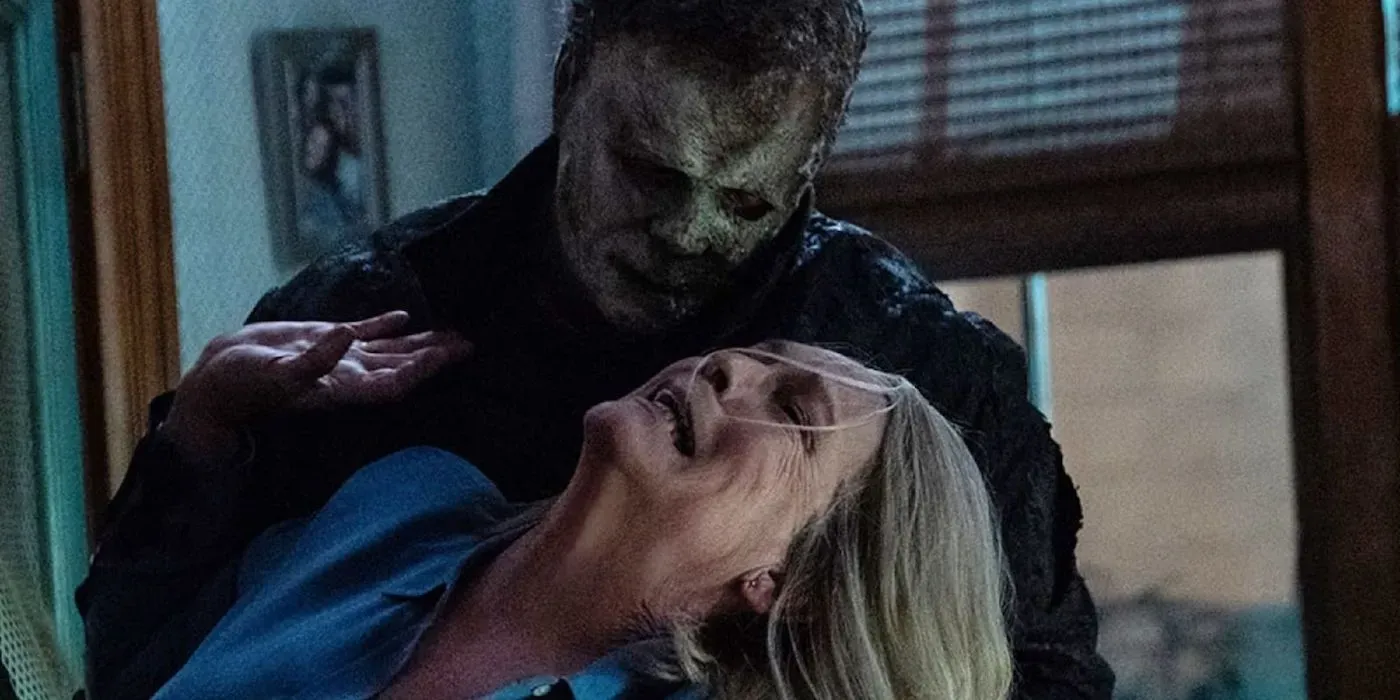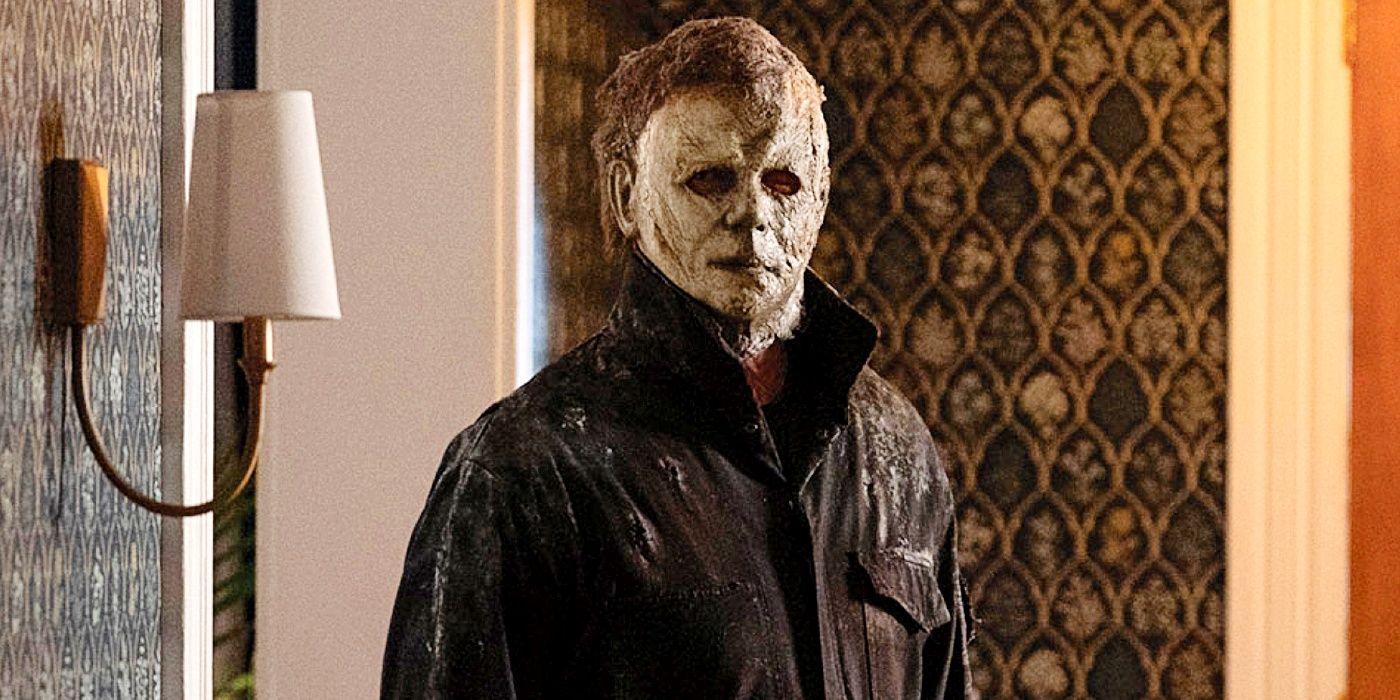Halloween Ends director David Gordon Green discusses the decision not to tell Michael Myers' backstory. The slasher film was released on October 14 and saw Jamie Lee Curtis return as Halloween heroine Laurie Strode. Halloween Ends is the final installment of the reboot trilogy that began in 2018 and the thirteenth film in the entire Halloween franchise.
Following the release of the first Halloween film, directed by John Carpenter, in 1978, the franchise saw a string of sequels before musician/director Rob Zombie rebooted it in 2007. In 2018, Green and screenwriter Danny McBride, with the involvement of John Carpenter and Blumhouse, launched a second Halloween reboot trilogy that brought back Jamie Lee Curtis as Laurie Strode. While Halloween has seen many reinventions at the hands of multiple directors, its notorious villain, Michael Myers, has always been at the heart of them all. Myers has remained a mystery throughout the years, and many have speculated about the masked serial killer's true identity and the motives behind his massacres.
Director David Gordon Green explains his decision not to reveal Michael Myers' backstory in Halloween Ends. In a recent interview with AV CLUB, Green describes his approach to the film as exploring the horrors of Myers's murders through other characters' perspectives. He specifies that he didn't want to focus on the source of evil in the villain himself but on how that evil impacted the lives of others.
You’re not going to go into a Michael Myers backstory because as far as I’m concerned, that’s forbidden territory. I don’t want to know his motivation, what inspires him.
Halloween Ends Was Right To Not Show Michael Myers' Origin
Many theories exist as to what Michael MMyers'sorigins could be. While Halloween Kills reveals a glimpse of the man behind the mask, and Halloween Ends shows the original Michael Myers return to kill his murderous copycat, the films are careful not to give too much away. This move proves to be an effective tactic, as fear is often rooted in the unknown. When horror films reveal too much about the source of danger, whether a monster, a serial killer or a supernatural entity, they increase the audience's understanding of the monster, ultimately rendering it less threatening. The more we know about Myers' background and motives, the less scary he becomes. Also, it would have been a mistake to make such a finite decision that would have retroactive implications on all Halloween lore. Ending a franchise can be challenging, and cementing the famous villain's background in Halloween Ends would have run the risk of dividing and upsetting many horror fans.
While Green's trilogy has ended, Michael Myers is bound to live on in the hands of future filmmakers. As Laurie Strode writes at the end of the film, "evil doesn't doesn't die, it changes shape,", and so does the Halloween franchise. To reveal the secrets of Michael Myers would close the door on the entire series forever. Halloween Ends does the right thing by keeping Michael Myers a terrifying mystery.
Source: AVC


